Hyundai i30 vs Hyundai Bayon – Differences & prices compared
Compare performance, boot space, consumption and price in one view.
Find out now: which car is the better choice for you – Hyundai i30 or Hyundai Bayon?
The Hyundai i30 (Hatchback) comes with a Petrol or Petrol MHEV engine and Manuel or Automatic transmission. In comparison, the Hyundai Bayon (SUV) features a Petrol engine with Manuel or Automatic transmission.
When it comes to boot capacity, the Hyundai i30 offers 395 L, while the Hyundai Bayon provides 411 L – depending on how much space you need. If you’re looking for more power, decide whether the 140 HP of the Hyundai i30 or the 100 HP of the Hyundai Bayon suits your needs better.
In terms of consumption, the values are 5.70 L per 100 km for the Hyundai i30, and 5.40 L for the Hyundai Bayon.
Price-wise, the Hyundai i30 starts at 24000 £, while the Hyundai Bayon is available from 20100 £. Compare all the details and find out which model fits your lifestyle best!
In the battle between the Hyundai Bayon and the Hyundai i30, both models bring their unique strengths to the table. The Bayon offers a compact SUV experience with elevated ground clearance and a practical urban-friendly design, making it ideal for city dwellers seeking versatility. On the other hand, the i30 presents a classic hatchback feel with a slightly sportier edge, catering to those who appreciate agile handling and a smooth ride for longer commutes.
Hyundai i30
The Hyundai i30 stands out in the hatchback segment with its sleek design and modern features. It offers a comfortable ride with a well-crafted interior that caters to both driver and passengers. With its emphasis on safety and technology, the i30 provides a balanced driving experience suitable for urban and suburban environments.
details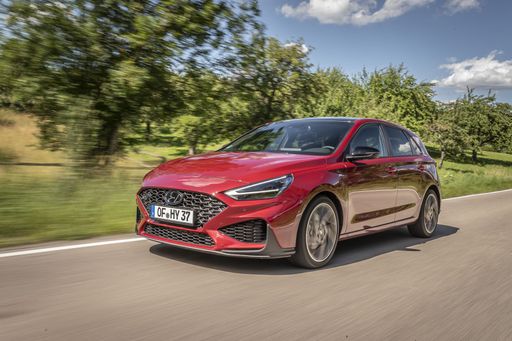 @ hyundai.news
@ hyundai.news
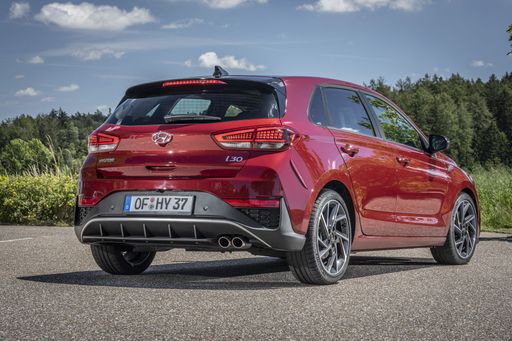 @ hyundai.news
@ hyundai.news
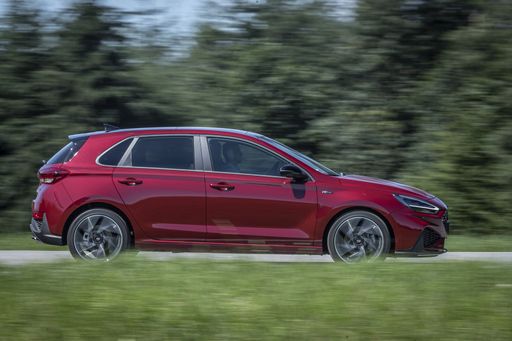 @ hyundai.news
@ hyundai.news
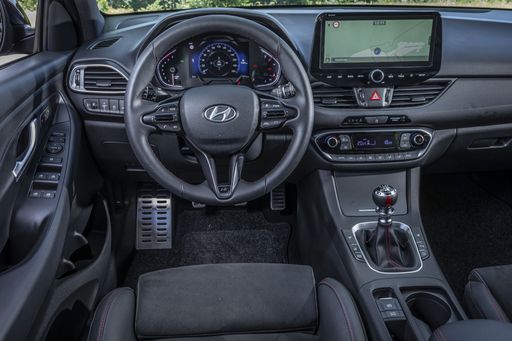 @ hyundai.news
@ hyundai.news
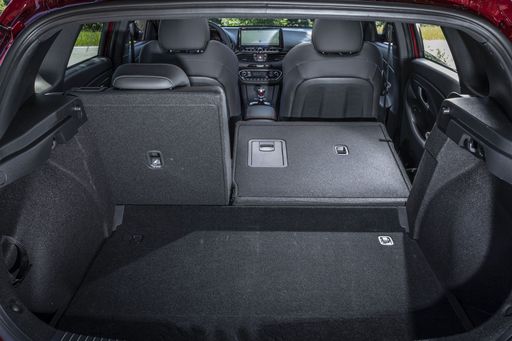 @ hyundai.news
@ hyundai.news
Hyundai Bayon
The Hyundai Bayon is a compact crossover that effortlessly merges practicality with modern design. Its sleek exterior and spacious interior make it an ideal choice for urban settings and longer journeys alike. With a focus on comfort and connectivity, this vehicle provides a smooth driving experience paired with advanced technology features.
details @ hyundai.news
@ hyundai.news
 @ hyundai.news
@ hyundai.news
 @ hyundai.news
@ hyundai.news
 @ hyundai.news
@ hyundai.news
 @ hyundai.news
@ hyundai.news
Exploring the Dynamic Duo: Hyundai Bayon vs Hyundai i30
In the bustling world of compact cars, Hyundai consistently sets the bar high with its range of affordable yet feature-rich vehicles. Today, we put two of the brand's popular models to the test: the versatile Hyundai Bayon and the stylish Hyundai i30. Both cars, though distinct in their own right, cater to the diverse needs of modern drivers. Our detailed comparison focuses on the technical aspects and innovations that set these models apart.
Body Type and Dimensions: An SUV vs. a Hatchback
The Hyundai Bayon is an SUV through and through, characterized by its elevated stance and robust build. Measuring 4180 mm in length, 1775 mm in width, and 1500 mm in height, the Bayon promises a compact profile without sacrificing interior space.
On the other hand, the Hyundai i30 is a hatchback that offers a slightly longer build at 4340 mm, 1795 mm in width, and 1455 mm in height. Its design is more aerodynamic, catering to those who value a sleek silhouette and sporty appearance.
Engine and Performance: Power Packed Variants
Under the hood, the Bayon offers a 3-cylinder petrol engine delivering 100 HP (74 kW) with a maximum torque of 172 Nm. Its lightweight design, with a curb weight ranging from 1170 to 1195 kg, ensures a frugal consumption of 5.4 L/100km, making it an efficient choice for urban commutes.
The i30, featuring both petrol and mild hybrid electric vehicle (MHEV) options, offers more power with variants reaching up to 140 HP (103 kW) and torque as high as 253 Nm. Despite this, the i30 maintains a respectable fuel consumption between 5.6 and 5.9 L/100km. The additional power does come with increased weight, with a curb weight spanning from 1291 to 1407 kg, offering a more substantial driving experience.
Transmission and Drive Type
Both models share transmission options, offering a choice between a manual gearbox and a smooth dual-clutch automatic. Regardless of preference, each model offers front-wheel drive, ensuring a familiar and reliable driving dynamic.
Interior Space and Comfort
Seating is comparable across both models, with each accommodating up to five passengers. However, the Bayon edges out slightly in trunk capacity with 411 L, compared to the i30’s 395 L, making it a slightly better choice for storage on long journeys.
Performance and Efficiency
Both vehicles deliver competitive acceleration times, with the Bayon reaching 0-100 km/h in approximately 11.3-12.4 seconds, depending on the specific configuration. Meanwhile, the i30 demonstrates its beefier powertrain with acceleration times ranging from 9.6 to 13.1 seconds.
In terms of maximum speed, the Bayon clocks in at 176-179 km/h, while the i30 can soar up to 197 km/h, appealing to those who appreciate a bit of speed on open roads.
Environmental Impact
With growing importance placed on environmental responsibility, both cars fall within the CO2 efficiency class D. The Bayon's emissions are measured at 122 g/km, slightly less than the i30, which ranges between 126 and 133 g/km.
Conclusion: Choosing Your Hyundai
The decision between the Hyundai Bayon and the Hyundai i30 ultimately depends on personal priorities. For those who lean towards a more robust, SUV-style with better storage options, the Bayon is an excellent choice. Meanwhile, the i30's greater power options and sleek hatchback design offer a compelling proposition for those who crave performance and style.
Regardless of choice, Hyundai's dedication to innovation and quality shines through in both models, ensuring drivers enjoy a balanced blend of comfort, performance, and efficiency.

|

|
|
|
|
Costs and Consumption |
|
|---|---|
|
Price
24000 - 29300 £
|
Price
20100 - 25800 £
|
|
Consumption L/100km
5.7 - 6 L
|
Consumption L/100km
5.4 - 5.5 L
|
|
Consumption kWh/100km
-
|
Consumption kWh/100km
-
|
|
Electric Range
-
|
Electric Range
-
|
|
Battery Capacity
-
|
Battery Capacity
-
|
|
co2
130 - 136 g/km
|
co2
124 g/km
|
|
Fuel tank capacity
50 L
|
Fuel tank capacity
40 L
|
Dimensions and Body |
|
|---|---|
|
Body Type
Hatchback
|
Body Type
SUV
|
|
Seats
5
|
Seats
5
|
|
Doors
5
|
Doors
5
|
|
Curb weight
1291 - 1407 kg
|
Curb weight
1170 - 1195 kg
|
|
Trunk capacity
395 L
|
Trunk capacity
411 L
|
|
Length
4340 mm
|
Length
4180 mm
|
|
Width
1795 mm
|
Width
1775 mm
|
|
Height
1455 mm
|
Height
1500 mm
|
|
Payload
463 - 509 kg
|
Payload
460 - 465 kg
|
Engine and Performance |
|
|---|---|
|
Engine Type
Petrol, Petrol MHEV
|
Engine Type
Petrol
|
|
Transmission
Manuel, Automatic
|
Transmission
Manuel, Automatic
|
|
Transmission Detail
Manual Gearbox, Dual-Clutch Automatic
|
Transmission Detail
Manual Gearbox, Dual-Clutch Automatic
|
|
Drive Type
Front-Wheel Drive
|
Drive Type
Front-Wheel Drive
|
|
Power HP
100 - 140 HP
|
Power HP
100 HP
|
|
Acceleration 0-100km/h
9.6 - 13.1 s
|
Acceleration 0-100km/h
11.3 - 12.4 s
|
|
Max Speed
178 - 197 km/h
|
Max Speed
176 - 179 km/h
|
|
Torque
172 - 253 Nm
|
Torque
172 - 200 Nm
|
|
Number of Cylinders
3 - 4
|
Number of Cylinders
3
|
|
Power kW
74 - 103 kW
|
Power kW
74 kW
|
|
Engine capacity
998 - 1482 cm3
|
Engine capacity
998 cm3
|
General |
|
|---|---|
|
Model Year
2024
|
Model Year
2024
|
|
CO2 Efficiency Class
D, E
|
CO2 Efficiency Class
D
|
|
Brand
Hyundai
|
Brand
Hyundai
|
Hyundai i30
Introducing the Hyundai i30: A Blend of Performance and Innovation
The Hyundai i30 continues to impress the automotive world with its fine balance of performance, efficiency, and cutting-edge technology. As a quintessential hatchback, the i30 caters to a diverse range of drivers, offering a remarkable driving experience through its impressive powertrains and compact yet stylish design.
Dynamic Performance Options
At the heart of the Hyundai i30 lies a variety of engine choices designed to suit different driving preferences. The power output ranges from 100 PS to 280 PS, allowing drivers to choose an i30 that perfectly matches their performance needs. Whether you're inclined towards the spirited drive of the N Performance variants or prefer the efficiency of the mild hybrid versions, there’s a powertrain tailored for you.
Innovative Hybrid Technology
For those seeking enhanced fuel efficiency without compromising on power, the i30’s 48V mild-hybrid system offers a compelling option. Available with both manual and automatic transmissions, this innovative technology provides an ideal balance, reducing emissions and improving fuel consumption, with an impressive average of just 5.7 L/100km.
Sophisticated Design and Features
The Hyundai i30’s sleek design is complemented by thoughtful interior features that elevate the driving experience. With a boot space ranging from 395 to 450 litres, this hatchback ensures ample room for all your luggage needs. Furthermore, the car's aesthetic appeal is matched by its practical ergonomic layout, catering to both style enthusiasts and those seeking functionality.
Advanced Safety and Technology
The i30 is equipped with an array of advanced safety features, enhancing driver confidence and ensuring passenger safety. Its cutting-edge safety suite includes lane-keeping assist, forward collision warning, and adaptive cruise control. Additionally, the i30 offers a modern infotainment system, designed to keep you connected and entertained on every journey.
Conclusion: A Versatile Choice for Modern Drivers
The Hyundai i30 is more than just a hatchback; it’s a remarkable amalgamation of power, efficiency, and modern technology. Whether you're enticed by the high-performance models or the eco-friendly mild-hybrid variants, the i30 stands out as a versatile choice that meets the demands of today’s discerning drivers.
Hyundai Bayon
Introducing the Hyundai Bayon: A New Era in Compact SUVs
The Hyundai Bayon, a compact SUV designed with urban adventurers in mind, is making waves with its exceptional blend of style, performance, and technology. The brand has pulled out all the stops to ensure that the Bayon stands out in the crowded SUV market, offering a vehicle that is both practical and innovative.
Sleek Design and Cutting-Edge Aerodynamics
The Bayon features a striking exterior design, characterised by its bold lines and angular shapes. With a length of 4180 mm, a width of 1775 mm, and a height of 1500 mm, the Bayon commands attention with its modern appeal and aerodynamic efficiency. These dimensions not only contribute to its sleek design but also enhance fuel efficiency, achieving an impressive 5.4 L/100 km.
Engine Performance and Specifications
Under the bonnet, the Bayon is powered by a 1.0-litre T-GDI petrol engine, delivering a robust 100 PS or 74 kW. This engine is available with either a manual or automatic gearbox, meeting varied driver preferences. The front-wheel-drive system complements its urban-centric design, ensuring a smooth and responsive ride.
Maximised Interior Space and Comfort
The spacious interior of the Bayon accommodates up to five passengers comfortably. The vehicle boasts a boot space of 411 litres, perfect for both everyday use and weekend getaways. The cabin is designed with practicality and technology in mind, with intuitive controls and ample storage options.
Advanced Technology and Connectivity
Hyundai has equipped the Bayon with state-of-the-art technology to enhance the driving experience. The SUV features a high-resolution touchscreen, offering seamless connectivity with Apple CarPlay and Android Auto. Safety is also a priority, with multiple driver assistance systems including lane-keeping assist and forward collision avoidance assist.
Environmental Efficiency
Despite its powerful performance, the Bayon achieves a respectable CO2 efficiency class of D, with emissions as low as 122 g/km. This balance between performance and environmental responsibility makes the Bayon an attractive option for conscientious drivers.
Affordability and Market Appeal
The Hyundai Bayon is competitively priced, ranging from €22,900 to €29,600. Its affordable running costs, estimated at 32.3 to 36.4 cents per kilometre, further enhance its appeal to budget-conscious consumers. With monthly costs ranging from €806 to €909, the Bayon provides excellent value without compromising on features or performance.
Final Thoughts
The Hyundai Bayon truly stands out in the compact SUV segment, combining style, innovation, and practicality in an appealing package. It offers a versatile driving experience suited to the demands of modern urban living, making it a top contender in its class. As Hyundai continues to champion forward-thinking design and technology, the Bayon is a testament to the company's ongoing commitment to excellence.
The prices and data displayed are estimates based on German list prices and may vary by country. This information is not legally binding.
